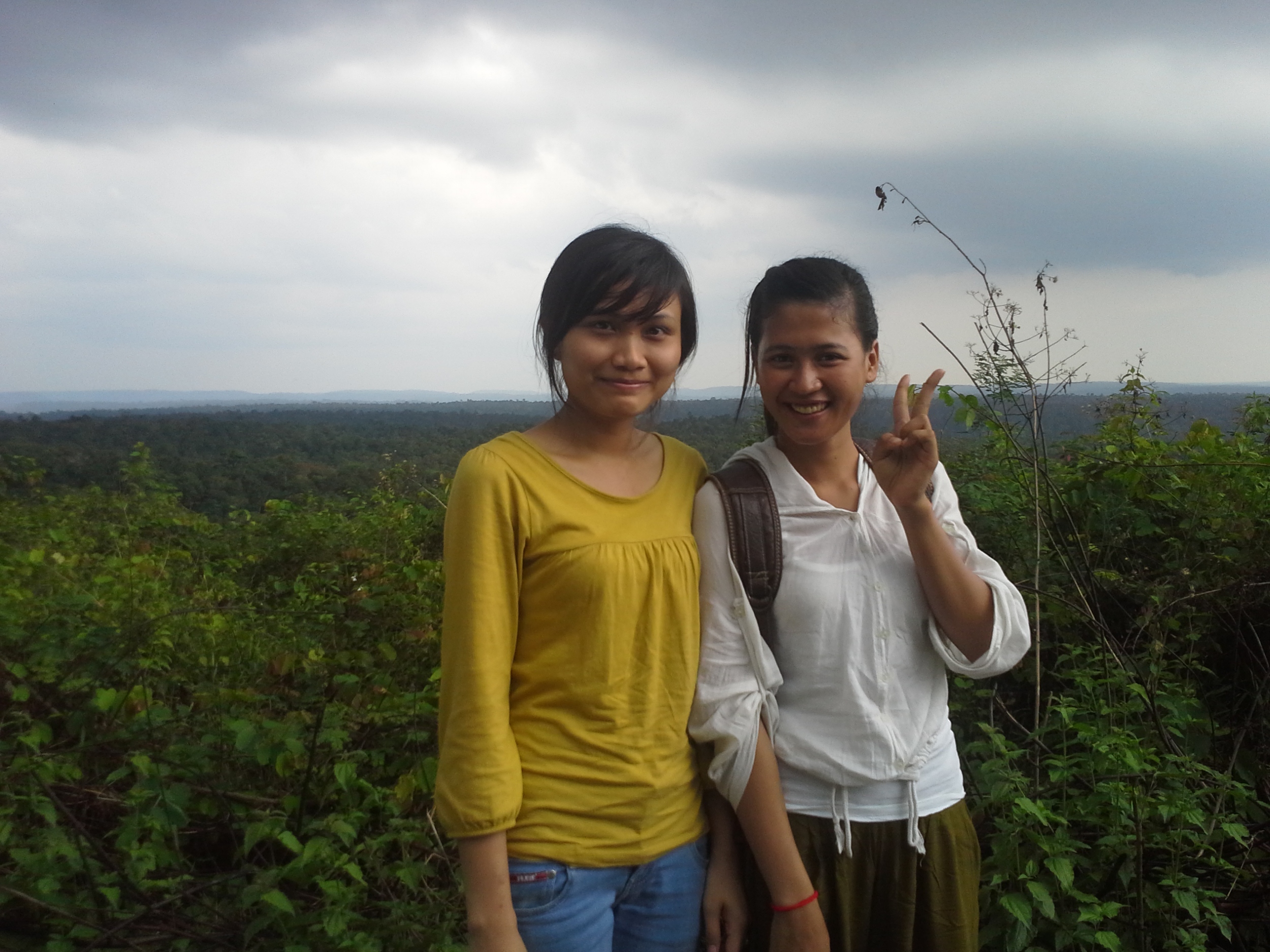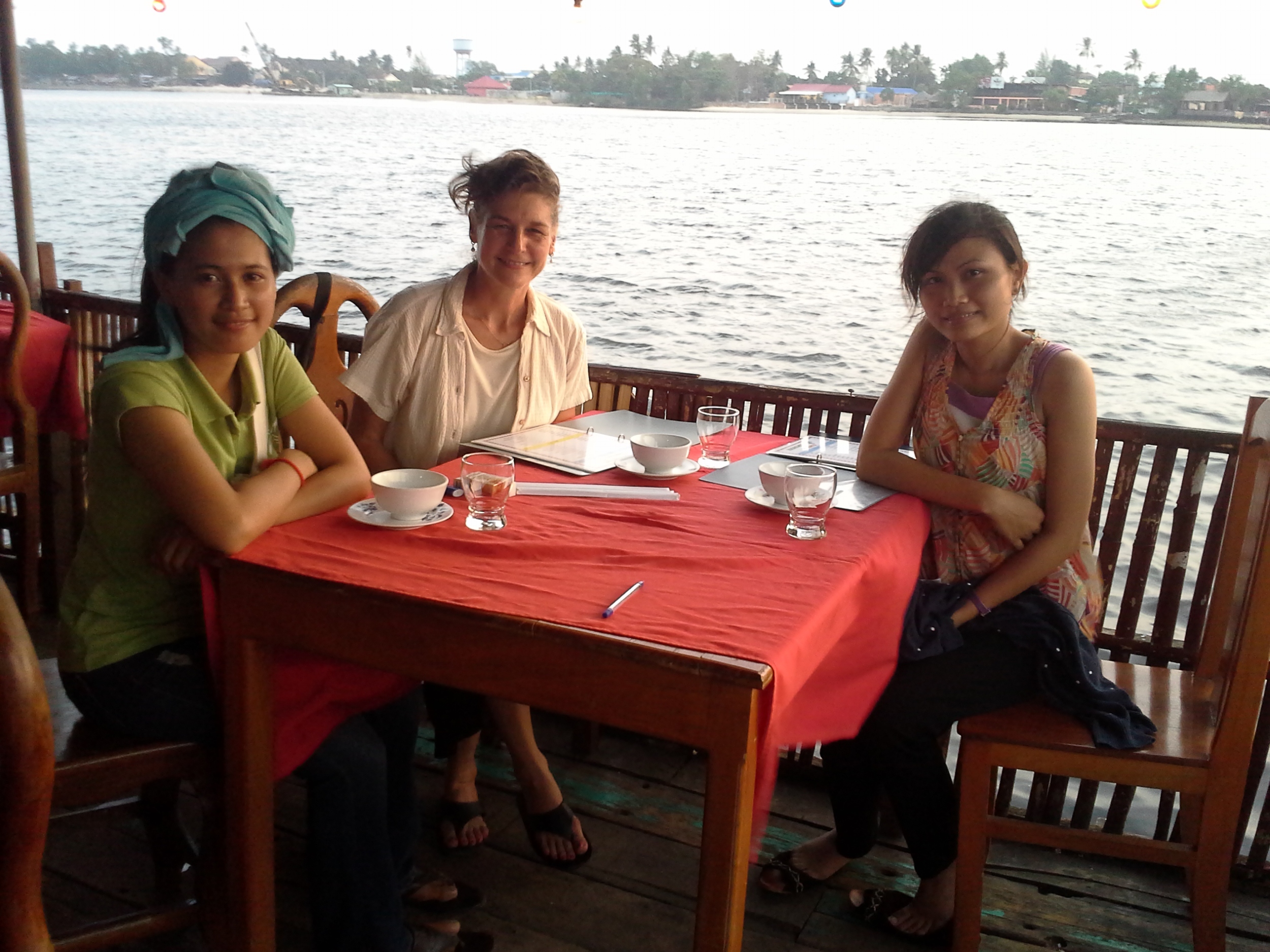January 26, 2013: Phnom Penh
Our second interview was with Sok Samith, who lives in a single-story white house down a quiet lane nearby a busy pagoda close to the city center of Phnom Penh. We were greeted by her two dogs, Sasa and Kacy, and one cat, Lily. Sok Samith is unmarried and lives with a niece in her early 20s. Sok Samith's story reminds of how Khmer Rouge discriminated against "New People," those urban dwellers evacuated from the cities when the regime took power. Often from the educated classes, they knew little about farming or how to survive the jungle elements, and they were often subjected to harsh punishment for being suspected enemy spies.
Sok Samith spent her early childhood in rural Srey Rieng province. The area was often bombed by the U.S. as part of the neighboring Vietnam War across the nearby border. Many residents, including Sok Samith and her family, fled to Phnom Penh for safety, and the city was crowded with refugees when the Khmer Rouge took power on April 15, 1975, forcibly evacuating the city in three days time. Although Sok Samith and her family were native to rural Srey Rieng, they were treated as “New People” as they lived in Phnom Penh when the Khmer Rouge entered the city. Her fate is most likely shared by many refugees who had fled to the city to avoid the armed conflict on the border.





